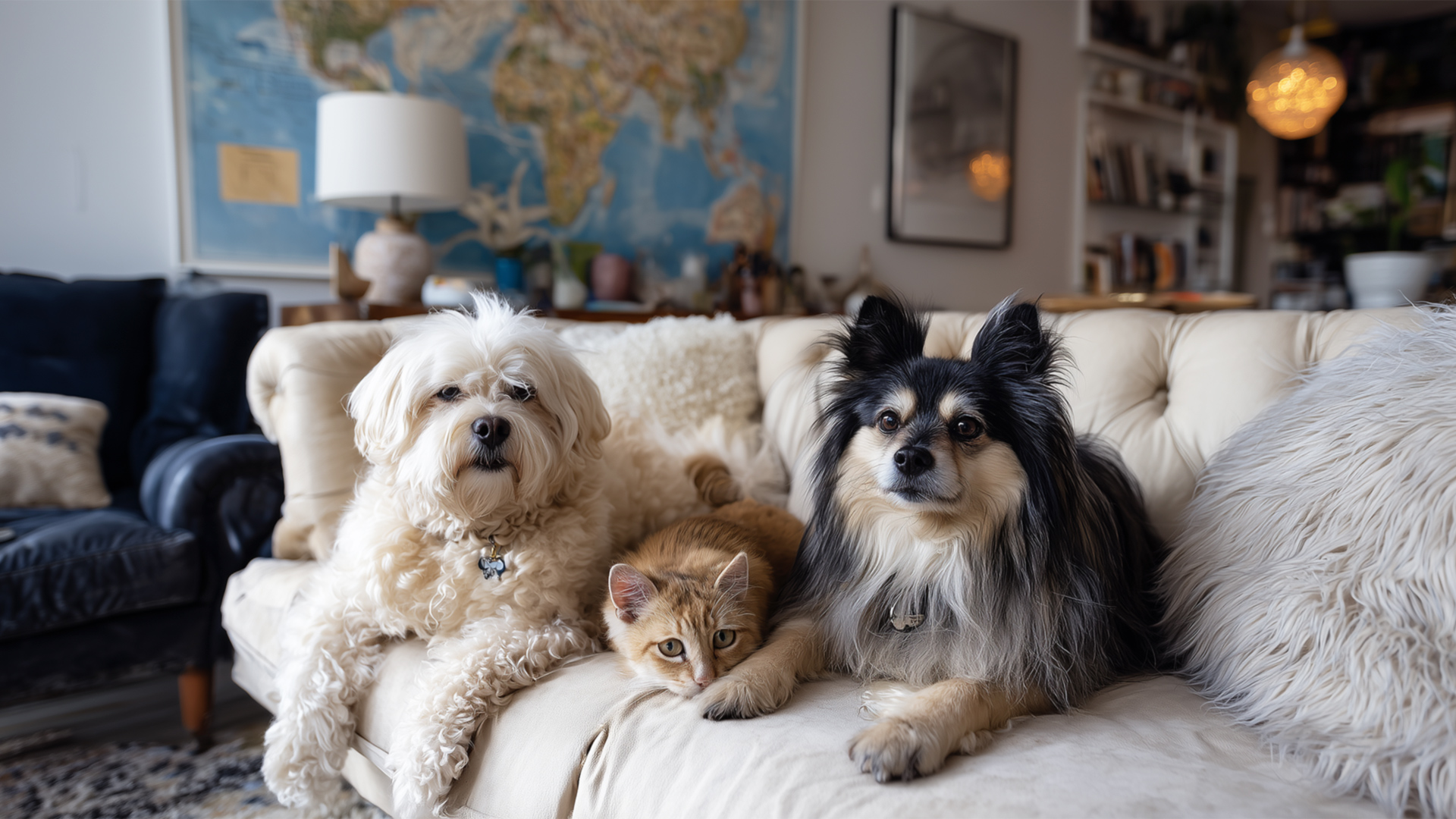
Do you love dogs? Well, who doesn’t? But do you get tired of smelling a typical dog odor in your home? That can be nauseating, but we know you love your dog. So, how can you make your house smell lovely in the presence of your dogs?
In this blog, we will discuss practical solutions to combating dog odors, highlight common causes of dog smells, and explore breeds that are prone to odors, while also providing practical solutions.
Table of Contents
- Why Do Some Dogs Smell More Than Others?
- Practical Tips to Eliminate Dog Smell in Your Home
- Which Dog Breeds Are Most Prone to Odors?
- When to Seek Professional Help
- Conclusion
Why Do Some Dogs Smell More Than Others?
Not all dogs smell the same. Some breeds are naturally more prone to developing odors. The reason for this variation lies in a combination of genetic and environmental factors. Let’s explore the root causes of dog smells, from natural body chemistry to daily habits.
- Natural Body Oils and Dander: Dogs’ skin produces oils and sheds dander, which can contribute to odors when trapped in their fur or on home surfaces.
- Wet Fur and “Wet Dog Smell”: When you give your dog a bath or when it comes home soaked from rainwater, have you noticed a stale smell? Well, moisture from baths or rain amplifies odors due to bacteria in fur.
- Diet and Health Issues: If your dog has a poor diet, digestive issues, or medical conditions like skin infections, dental problems, or anal gland issues, it can cause strong odors.
- Lack of Grooming: You should groom your dog regularly. Irregular grooming leads to oil buildup, dirt, and dead hair accumulation.
- Environmental Factors: If your dogs are tracking in dirt or rolling in smelly substances, they contribute to household odors.
Now that we understand why dogs can smell, let’s explore practical ways to keep your home fresh and odor-free.
Practical Tips to Eliminate Dog Smell in Your Home
If your house constantly has that typical doggy smell, it’s not a “hell-level” disaster. As long as these smells are dealt with as soon as possible, they will not persist. By following the tips we give below, everyone can easily get rid of the dog smell in the house.
Regular Grooming
A consistent grooming routine is key to a fresh-smelling dog and home. Bathe your dog every 4-6 weeks using a pH-balanced, pet-safe shampoo to reduce oils, dirt, and odor buildup. Brush 2-5 times a week to remove loose fur and dander that can cause a smell and allergies. Don’t forget dental hygiene, use vet-approved chews or toothbrushes regularly to fight bad breath and improve your pet’s overall cleanliness.
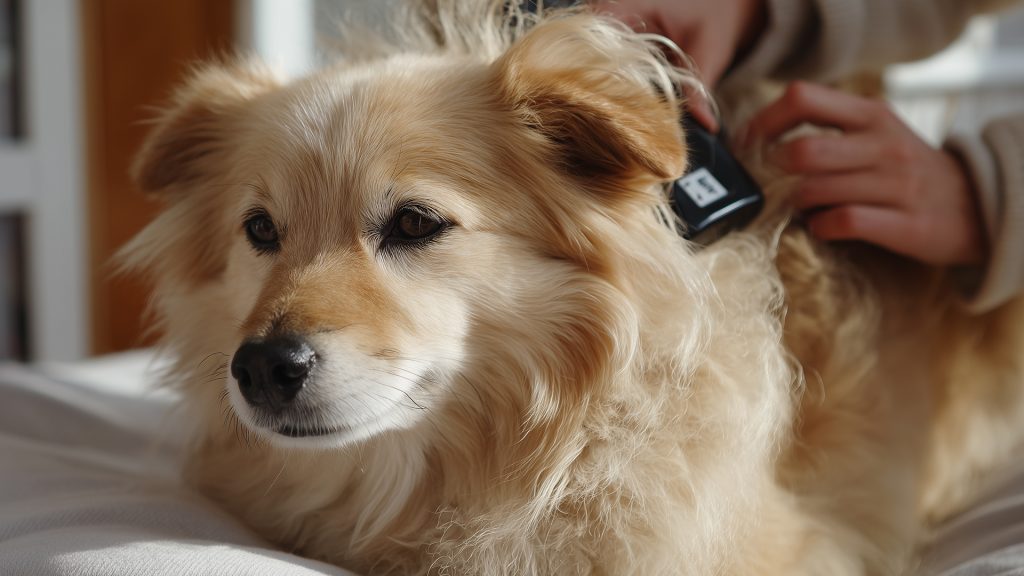
Clean Pet Bedding and Toys
Wash your pet’s bedding at least once a week using a gentle, pet-safe detergent. Add a splash of apple cider vinegar to help naturally neutralize odors. Regularly vacuum around their sleeping areas to pick up fur and dander. Don’t forget to wash or sanitize your dog’s favorite toys, especially soft ones, to prevent bacteria buildup.
Tackle Carpets and Furniture
For pet odor removal, sprinkle baking soda on carpets or fabric furniture and let it sit for 15-20 minutes before vacuuming. For pet accidents, use a pet-safe enzymatic cleaner that breaks down odor-causing bacteria. Vacuum 2–3 times per week using a HEPA-filter vacuum to trap pet hair, dander, and allergens that contribute to lingering smells. For more tips, you can visit our special guide about how to get rid of pet hair and smell from carpet.
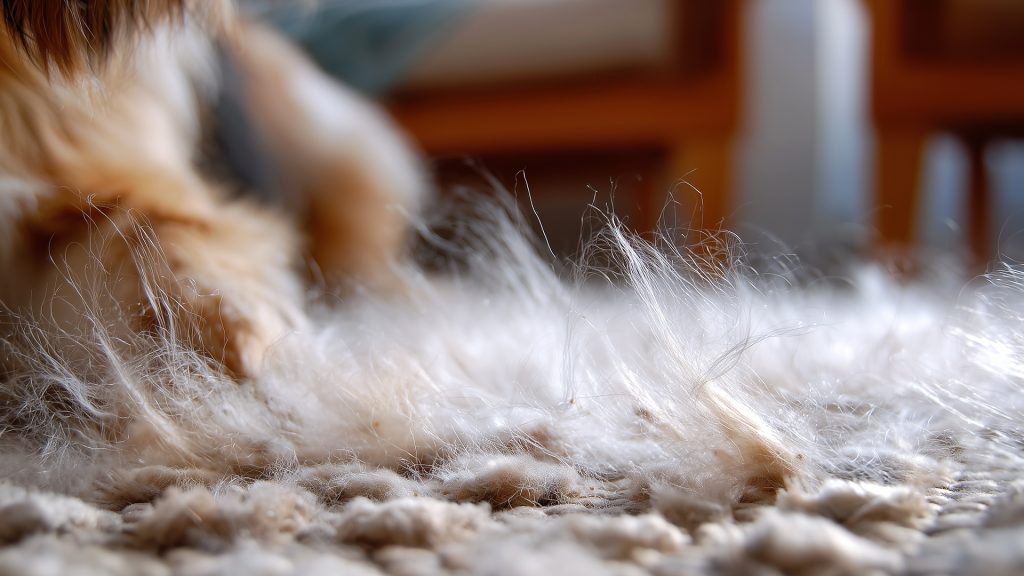
Ventilation and Air Quality
Open windows for at least 30 minutes daily to circulate fresh air and reduce odors. Add air-purifying plants like spider plants or Boston ferns for a natural boost. For best results, invest in a high-quality air purifier with a HEPA filter; most ordinary models can’t fully eliminate persistent dog odors and allergens in enclosed indoor spaces.
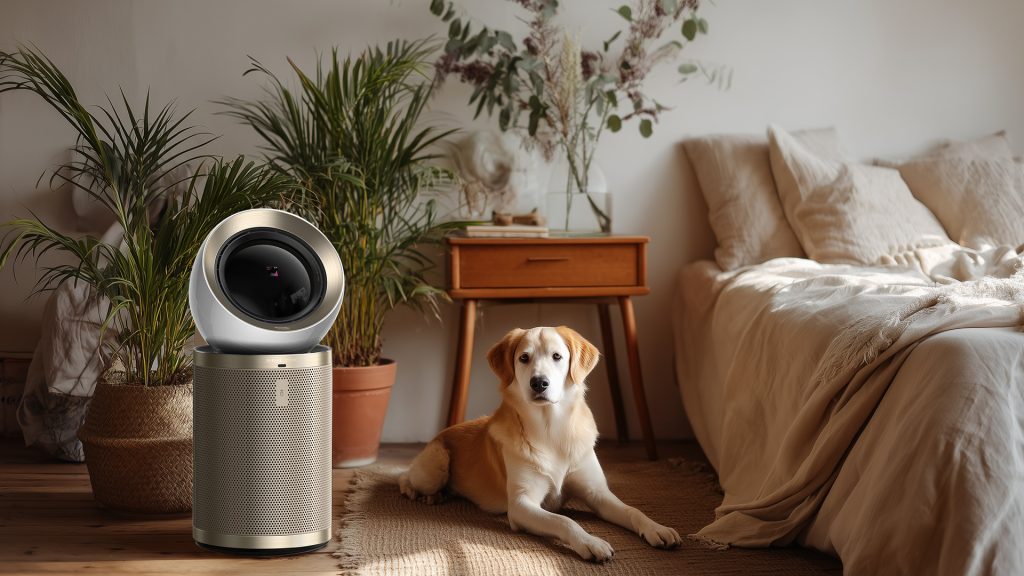
Address Accidents Immediately
Clean up pet messes right away using a 1:1 vinegar and water solution. Blot the area gently, then dry it completely to prevent lingering odors. Acting quickly helps stop stains from setting and keeps your home smelling fresh. For stronger messes, use a pet-safe enzymatic cleaner to break down odor-causing bacteria.
Which Dog Breeds Are Most Prone to Odors?
Some dog breeds are prone to producing odor. Some of these smelly dog breeds are:
- Breeds with Thick or Oily Coats: Breeds like Basset Hounds, Bloodhounds, and Labrador Retrievers produce odor as their oily coats trap odors.
- Long-Haired Breeds: Dog breeds like Afghan Hounds or Shih Tzus have a long fur that can harbor dirt and smells if not groomed regularly.
- Breeds with Skin Folds: Some breeds like Bulldogs, Pugs, or Shar-Peis are prone to odors due to skin fold infections.
- High-Shedding Breeds: Breeds like German Shepherds or Huskies shed heavily, spreading dander and odors in the home.
Any dog, regardless of breed, can develop odors due to health, diet, or environment, not just specific breeds.
When to Seek Professional Help
If pet odors persist despite regular cleaning and grooming, consult a veterinarian. Persistent smells can signal underlying health issues such as skin infections, ear problems, or dental disease. Early diagnosis ensures proper treatment and helps keep your pet healthy while also maintaining a fresher, cleaner home environment.
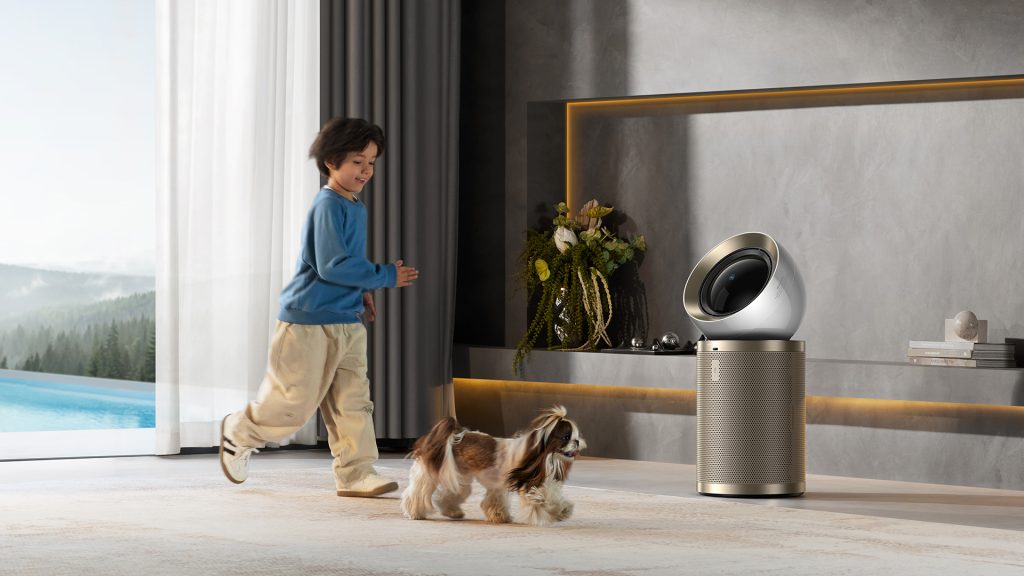
Conclusion
Eliminating dog odors is achievable with simple steps like regular grooming, thorough cleaning, and smart tools like air purifiers. By understanding odor causes and applying natural solutions like baking soda or ventilation, you can keep your home fresh.
For extra help, consider a reliable air purifier like the Dreame AirPursue PM20 to tackle pet dander and smells effortlessly. Enjoy your furry friend without the lingering odors!